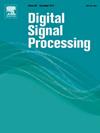跨模态检索的非对称和判别哈希
IF 3
3区 工程技术
Q2 ENGINEERING, ELECTRICAL & ELECTRONIC
引用次数: 0
摘要
由于其在存储和计算方面的优势,跨模态哈希在信息检索领域引起了广泛的关注。然而,流行的跨模态散列技术经常难以充分利用模态中固有的判别信息,导致检索任务的性能欠佳。此外,对称分解方法在求解离散变量时会遇到棘手的优化问题和信息丢失问题。为了解决这些限制,我们提出了一种非对称和判别跨模态哈希(ADCH)方法。一方面,ADCH采用带核判别分析的投影学习模块来寻找判别公子空间;另一方面,提出了一种保留成对标记距离关系的非对称哈希学习方法,以提高学习到的哈希函数的判别能力。在四个基准数据集上进行了广泛的实验,实验结果表明,ADCH在检索精度上取得了显着提高,并且优于最先进的跨模态哈希方法。本文章由计算机程序翻译,如有差异,请以英文原文为准。
Asymmetric and discriminative hashing for cross-modal retrieval
Cross-modal hashing has garnered substantial interest in the domain of information retrieval owing to its advantages in storage and computation. However, prevalent cross-modal hashing techniques frequently struggle to adequately exploit the discriminative information inherent in modalities, leading to suboptimal performance in retrieval tasks. Additionally, the symmetric factorization methods encounters tricky optimization problems and information loss when solving discrete variables. To address these limitations, we propose an Asymmetric and Discriminative Cross-modal Hashing(ADCH) method. On the one hand, ADCH incorporates a projection learning module with kernel discriminant analysis to find a discriminative common subspace. On the other hand, an asymmetric hash learning approach that preserves the pairwise label distance relations is developed to enhance the discriminative power of the learned hash functions. The extensive experiments were carried out on four benchmark datasets and the experimental results demonstrate that ADCH achieves significant improvements on retrieval precision and outperforms state-of-the-art cross-modal hashing methods.
求助全文
通过发布文献求助,成功后即可免费获取论文全文。
去求助
来源期刊

Digital Signal Processing
工程技术-工程:电子与电气
CiteScore
5.30
自引率
17.20%
发文量
435
审稿时长
66 days
期刊介绍:
Digital Signal Processing: A Review Journal is one of the oldest and most established journals in the field of signal processing yet it aims to be the most innovative. The Journal invites top quality research articles at the frontiers of research in all aspects of signal processing. Our objective is to provide a platform for the publication of ground-breaking research in signal processing with both academic and industrial appeal.
The journal has a special emphasis on statistical signal processing methodology such as Bayesian signal processing, and encourages articles on emerging applications of signal processing such as:
• big data• machine learning• internet of things• information security• systems biology and computational biology,• financial time series analysis,• autonomous vehicles,• quantum computing,• neuromorphic engineering,• human-computer interaction and intelligent user interfaces,• environmental signal processing,• geophysical signal processing including seismic signal processing,• chemioinformatics and bioinformatics,• audio, visual and performance arts,• disaster management and prevention,• renewable energy,
 求助内容:
求助内容: 应助结果提醒方式:
应助结果提醒方式:


